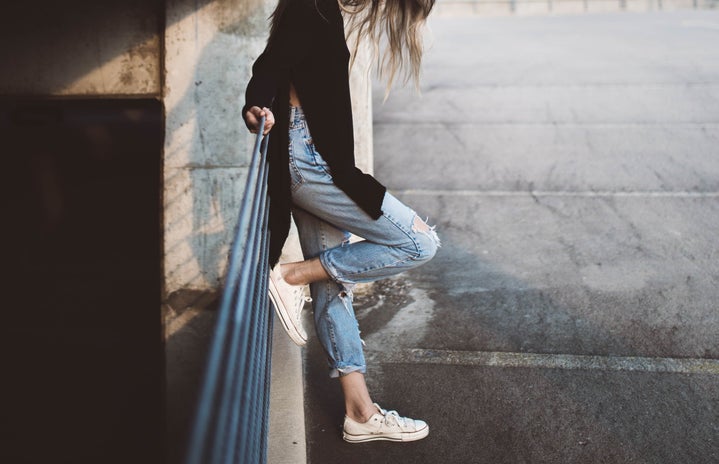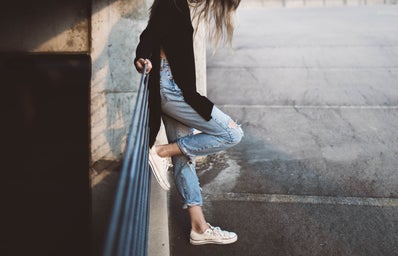Let me tell you, working in retail has its ups and downs. I have been working at the same retail store for over a year and I love my fashionable co-workers, the amazing discounts and being able to stay on top of the latest trends. However, even with all these perks, you are bound to come upon some hard truths. This especially pertains to the more popular, trendy and over-priced retail stores, such as the one I work at. The most surprising reveal to me was witnessing the different types of images that the stores portray, and with that, the messages they convey and the damage they cause. I will dive into this dark truth by examining the very things which are intended to act as reflections of the stores’ targeted shoppers: the mannequins.
Mannequins are meant to be inanimate models which represent the store’s typical shopper, so that shoppers may see themselves wearing the clothes without actually trying them on first. However, if you haven’t already noticed, mannequins at these types of stores do not look like everybody. Over the course of working at what I’ll refer to as “Store X”, I have assembled many mannequins. In doing so, I was instructed to not only use the smallest size we had, typically extra small, but to also pin the clothes back so to make them appear smaller and more fitting on the slender and cinched waists of the mannequins. This was standard for all the mannequins. By only displaying mannequins which are too small to even fit into the smallest available size, is to set a standard that the store itself knows is unrealistic for the average shopper. If they were trying to make the mannequins more realistic, the mannequins would not require pins in order to wear any of the clothes being sold or the sizing of the clothes would be different, which they are not.
Now, why do they do this? Why do popular clothing stores go out of their way to make the bodies of their mannequins unattainable to the average person? By being one of the most popular stores for young women today, “Store X” has a reputation to maintain. This includes being exclusive, the best of the best, and what everybody wants to be. If they were attainable, relatable or like everybody else, they would lose these ludicrous appeal of exclusivity and superiority, to be above everyone else, something of desire rather than of attainability. This theory can be strengthened by simply looking at your phone, opening any form of social media and seeing this very body, the body of these mannequins plastered in popular ad campaigns. Stores such as “Store X” bolster the idolization of these bodies by using their influence to manipulate the minds of society, by playing with insecurity and the desire to be liked. They make girls whose bodies do not match those seen on mannequins feel inferior and out of place when they do not see their size on racks or on tables. This is because stores such as “Store X” are instructed to place only one large and three mediums out among the 5 or 10 smalls and extra smalls, while the rest of them are placed in the back. They create a larger amount of sizes such as extra large, large, and medium than what is seen from the outside, simply because they do not wish to publicize that. They would rather maintain their guise of unattainability and exclusivity. By filling a store with mannequins that only look like one, idolized body type, these stores are simply making other women feel small, as though their body type is not “popular.” By doing this, these stores are giving power to a society that is already so full of anxieties and insecurities, creating an environment that appears exclusive and superior. Next time you go into your favorite clothing store, walk with your head held high and your confidence flag flying. Don’t let the looming presence of these mannequins scare you. Be proud of your body and don’t feel insecure about asking for a larger size. If you feel uncomfortable by a clothing store, leave. They don’t deserve your time and money anyways. You are a queen and a queen is the best of the best, not determined by these clothing stores.



